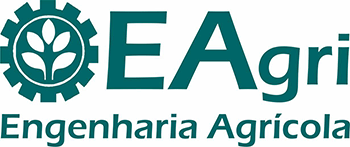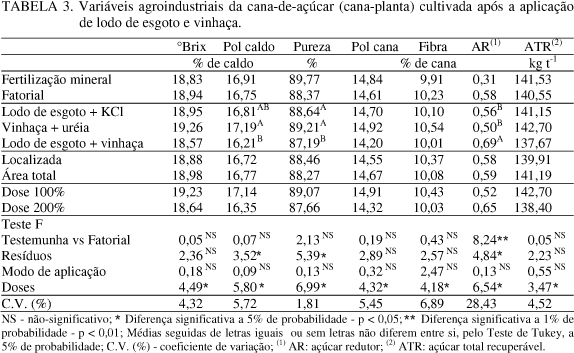The agricultural use of organic residues is an interesting alternative to disposal allowing the recycling of nutrients (NPK) in the ecosystems. The objective of this research was to evaluate the effect of sludge application as N source and vinasse as K source when compared to the use of mineral sources of these nutrients on yield and technological variables of the sugar cane, over two consecutive years (cane-plant and first ratoon cane). The experiment was conducted on a Haplustox, in Pontal county, São Paulo state, Brazil. The sugarcane variety was SP 81-3250. The results were organized in a factorial scheme 3x2x2+1: three residue types (sewage sludge + KCl, vinasse + urea and sewage sludge + vinasse); two application mode (planting line and total area); two doses (100 and 200% of N and K for sugarcane crop) and an additional treatment (mineral fertilization). The experimental design was a randomized blocks with three replications. The analyzed parameters were productivity and technological variables (juice brix, juice sucrose contents, reducing sugars juice contents, purity, cane sucrose contents, and recoverable total sugar (RTS) cane contents and RTS productivity). The stalks and the sugar yields of cane-plant did not change while the N and K were suplyied by the sludge and by vinasse, respectively. The first ratoon cane presented greater stalks and sugar yield when residue were used separated complemented by mineral fertilization. In relation to application mode, no differences were observed for all paremeters.
Saccharum spp.; nitrogen and potassium fertilizers; organic residues




